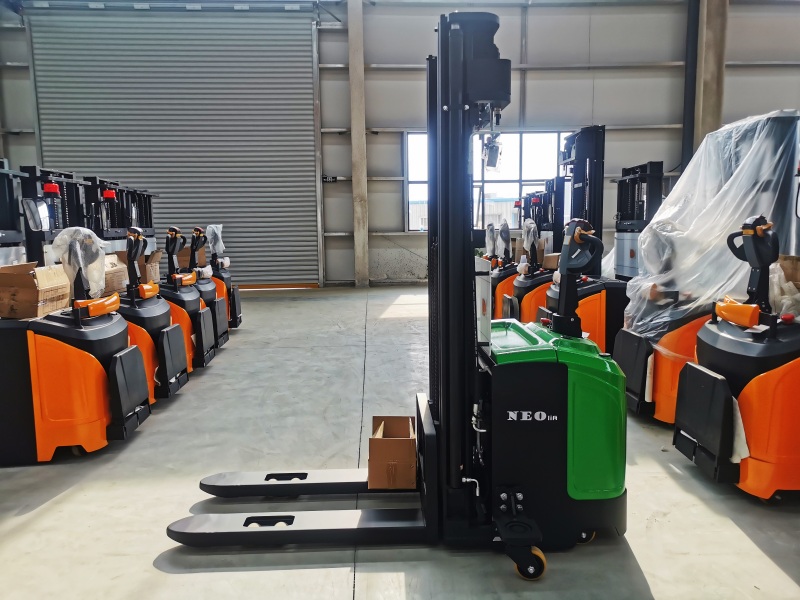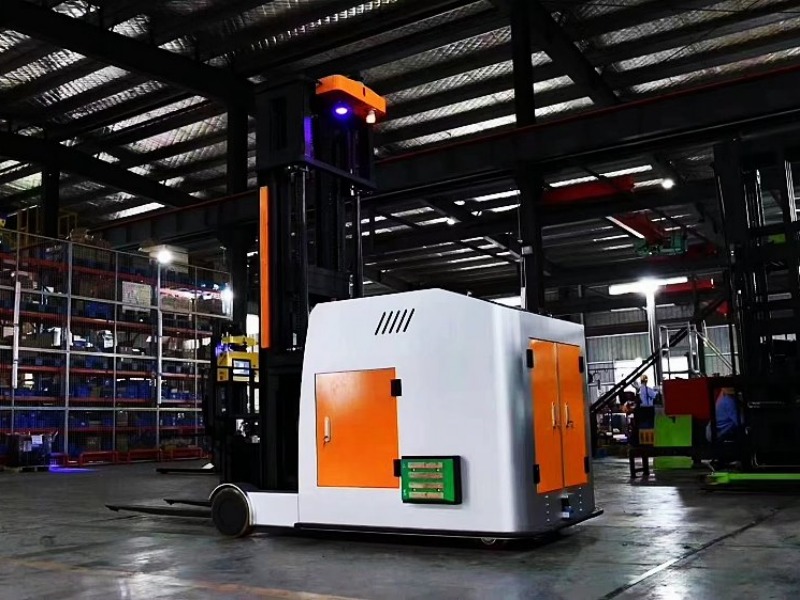The Future of Electric Warehouse Trucks: Trends & Innovations Shaping the Industry
May 20, 2025
As warehouses and distribution centers strive for greater efficiency, sustainability, and automation, electric warehouse trucks (including pallet jacks, order pickers, reach trucks, and forklifts) are evolving rapidly. With advancements in battery technology, smart connectivity, and automation, the future of electric material handling equipment is set to revolutionize logistics operations. Here’s a look at the key trends driving the industry forward.
1. Lithium-Ion Batteries: The New Standard
Traditional lead-acid batteries are increasingly being replaced by lithium-ion (Li-ion) technology, offering:
• Faster charging (opportunity charging without memory effect)
• Longer lifespan (2-3x longer than lead-acid)
• Lower maintenance (no watering or equalization charging)
• Higher energy density (more power in a smaller, lighter battery)
As costs continue to decline, Li-ion will become the dominant power source for electric warehouse trucks.
2. Smart & Connected Forklifts (IoT & Telematics)
The Internet of Things (IoT) is transforming warehouse trucks into intelligent, data-driven machines. Key developments include:
• Real-time fleet monitoring (tracking battery status, maintenance needs, and operator behavior)
• Predictive maintenance (reducing downtime by detecting issues before failures occur)
• Automated alerts for safety hazards (e.g., impacts, overloading, or overheating)
Cloud-based fleet management systems will help warehouses optimize efficiency and reduce costs.
3. Automation & Autonomous Mobile Robots (AMRs)
The line between traditional forklifts and autonomous robots is blurring. Future trends include:
• Self-driving electric forklifts that navigate warehouses using AI and sensors
• Collaborative robots (cobots) working alongside human operators
• Automated guided vehicles (AGVs) evolving into AMRs with dynamic pathfinding
These technologies will enhance productivity in high-throughput warehouses, especially in e-commerce fulfillment centers.
4. Energy Efficiency & Sustainable Warehousing
With stricter emissions regulations and corporate sustainability goals, electric warehouse trucks are becoming the norm. Innovations include:
• Regenerative braking (recovering energy during deceleration)
• Solar-powered charging stations for greener operations
• Battery-swapping stations to minimize downtime
Companies investing in electric fleets will benefit from lower operating costs and a reduced carbon footprint.
5. Ergonomic & Operator-Centric Designs
As labor shortages persist, improving operator comfort and safety is a priority. Future designs will feature:
• Adjustable seats, controls, and visibility enhancements
• Voice-guided assistance and augmented reality (AR) displays
• Anti-fatigue systems to reduce strain during long shifts
6. Modular & Customizable Solutions
Warehouses with specialized needs (e.g., cold storage, narrow aisles, or heavy loads) will see more modular electric trucks tailored for specific tasks. Examples include:
• Compact electric pallet jacks for tight spaces
• High-capacity reach trucks for vertical storage
• Hybrid human-operated/autonomous models
Conclusion: The Electric Warehouse Truck of Tomorrow
The future of electric warehouse trucks is smart, automated, and sustainable. With advancements in battery tech, IoT connectivity, and automation, businesses can expect:
✔ Higher efficiency with minimal downtime
✔ Lower operating costs through predictive maintenance
✔ Improved safety & ergonomics for workers
✔ Greater sustainability with zero-emission operations
As these innovations accelerate, companies that adopt next-gen electric warehouse trucks will gain a competitive edge in the fast-evolving logistics landscape.

